♣ Türkiye national team (History)
Football was introduced to the Ottoman Empire by Englishmen living in the area. The first matches took place in Selanik, now known as Thessaloniki, in 1875. F.C. Smyrna was the first football club established in Turkey. The same men brought football from İzmir to Istanbul in 1895. The first competitive matches between İzmir and Istanbul clubs took place in 1897, 1898, 1899, and 1904. The İzmir team won every match.
▲ Türkiye national team Emblem
♣ Early years (1875–1923)
Football was played between English soldiers and sailors in Ottoman Empire in the late 19th century and it was quickly spread to the minorities, Greeks, Armenians, and the Levantines. The first teams in the Ottoman Empire consisted of Greek, Armenian and English players. One of the first matches recorded in the Empire was in 1889 between Levantine teams: Bournabat Football Club played against Constantinople FC, according to historian Mehmet Yüce.
At the time, Turkish were prohibited of partaking in sports activities and it was considered not in the culture of Islam. The first club made up of Turkish footballers was Black Stockings FC, in 1899. Police of the Ottoman Empire invaded the pitch, arresting as many players as they could. The same year, on 14 January 1889, a Smyrna selection consisted of mainly English and French players travelled to Constantinople to face Constantinople FC, another English team. The latter beat the former by 3-0 at the Yaourt Tchesme, in Moda, in front of 1000 spectators.
Cadi Keuy FRC, Moda FC, Elpis F.C., and HMS Imogene F.C. followed the precedent set by Black Stockings. The first competitive league was created in 1904. Based in Istanbul and titled the "Constantinople Football League", it consisted the four aforementioned clubs (Cadi Keuy FRC, Moda FC, Elpis, and Imogene FC). However, Turkish players were still prohibited to compete. In the following years, things changed and the Committee of Union and Progress would encourage young Turks to compete in sports as their Greek, Armenian and Levantine peers did. Therefore, clubs of Turkish players such as Fenerbahçe and Galatasaray were founded (Still-active Turkish club with the oldest football team. Despite Beşiktaş was founded in 1903, they started football activities in 1911) were founded with Turkish players. The league was also known as the Sunday League because the matches took place on Sunday. The first club to win the league was HMS Imogene FC.
Two teams from the Ottoman Empire competed in football at the 1906 Intercalated Games: Smyrna, made up of English and French players and Thessaloniki, consisted of Greek players. Both clubs lost heavily to Denmark and Athens, losing 5-1 and 5-0 respectively. However, Athens withdrew from the second place match, allowing Smyrna to compete against Thessaloniki. Smyrna won 3–0, winning the silver medal.
The first Turkish man to play the sport was a soldier on assignment in İzmir in 1898. Since the 1908-09 season there was an organised league in Izmir, known as Smyrna at the time, between Greek, Armenian and Levantine teams such as Apollon Smyrnis, Panionios, Bournabat Football Club, Maccabi de Foot-ball, Wanderer. The championship ended in 1922 with the Burning of Smyrna and the Population exchange between Greece and Turkey. Apollon Smyrnis was the most successful club with 5 titles. A new league for Turkish teams was created in Smyrna in 1915 until 1917 between Altay S.K., Karşıyaka S.K., Turan and Tripoli. Altay S.K. won 3 championships.
Another league was created in Instabul, known as Constantinople at the time, in 1912. The league was called The Friday League, and the clubs played their matches on Friday. The league was made up of Darülfünun S.K., İstanbul J.K. (later known as Türk İdman Ocağı, who became Trabzonspor in 1967), Anadolu S.K., Sanayii F.K., Şehremini S.K., and Fenerbahçe S.K. (II). The Sunday League remained the dominant league until the 1915–16 season, when both leagues merged. The İstanbul Türk İdman Birliği was created by Beşiktaş in 1919. The league was not allowed to join the Friday League. Later on, in 1922, the Türkiye İdman Cemiyetleri İttifakı was founded. The league was made up of clubs from various cities throughout Turkey.
♣ After Independence (1923-1959)
The league helped create the Turkish Football Federation on 23 April 1923 as Futbol Hey'et-i Müttehidesi. In the same year the Turkey national football team played its first ever international match against Romania. Leagues were being created in other cities such as Adana, Ankara, Eskişehir, İzmir, and Trabzon. The Milli Küme was created in 1937 as a competition between the top clubs from Ankara, Istanbul, and İzmir. The competition lasted until 1950. The first professional leagues were established in 1952 in the big three cities. The first national professional league was created in 1959, known as the Milli Lig. After the creation of the second and third divisions, professional leagues outside of the national league became amateur competitions.
The Milli Lig (National league) was first held in 1959 with clubs from Ankara, Istanbul, and Izmir. Qualification took place in 1958 to decide who would take part in the sixteen club, two group league. Fenerbahçe were the champions of the first Milli Lig, with Metin Oktay of Galatasaray finishing top scorer.
Near misses
Despite the introduction of a national league, and showings by Turkish clubs in European competition, the 1960s would be a barren time for the national team. Most players from the 1954 World Cup squad have already retired, and the new generation of players failed to qualify for a major tournament. The 1970s saw Turkey holding back in the World Cup and UEFA European Championship qualifiers, but the team was a point too short to qualify for both UEFA Euro 1972 and Euro 1976. In the 1980s the Turks also suffered their worst defeats with 8–0 scorelines against Poland and twice against England. But the 1990 World Cup qualifiers would mark a turning point for Turkish football, with Turkey only missing out on qualification in the final match. Prominent players in this period included Rıdvan Dilmen, Oğuz Çetin, Rıza Çalımbay, Feyyaz Uçar, and European Golden Boot winner Tanju Çolak.
1990s
In 1990, coach Sepp Piontek was put in charge of the national team. Under his guidance, a group of new players debuted for the national team. Many of these players (which included Bülent Korkmaz, Alpay Özalan, Sergen Yalçın, Rüştü Reçber, and Hakan Şükür) would become the backbone of the national team for many years. Piontek's mission came to an end in 1993, when he was replaced by Fatih Terim, who in turn managed to qualify for Euro 1996. Turkey qualified for its first major tournament since 1954. The appointment of Piontek was a recommended move by another coach, Jupp Derwall, who had coached Galatasaray for three seasons.
Turkey qualified for Euro 1996, defeating both Switzerland and Sweden 2–1 during qualification. Despite a solid performance during the qualifiers, Turkey lost all their matches without scoring a single goal. They did, however, go home with an award: the fair play award, given to Özalan.
2000s
Although Turkey failed to qualify for the 1998 World Cup, they qualified for Euro 2000 after winning a play-off against the Republic of Ireland. Turkey lost their first match 2–1 to Italy, then drew their second match against Sweden 0–0, and beat host nation Belgium 2–0, making it the first time in the history of the UEFA European Championship a host nation had been eliminated in the first round. This victory brought Turkey into the quarter-finals of the tournament, where they were beaten 2–0 by Portugal, with Arif Erdem missing a penalty.
▲ Hakan Şükür Türkiye national team
For the 2002 World Cup, Turkey finished second in their qualifying group, losing to Sweden in the match that would decide the number-one spot. The Turks were forced to play the play-offs against Austria. They defeated the Austrians 6–0 on aggregate and booked their place in the finals. The Turkish team started the 2002 World Cup with a 2–1 defeat against eventual winners Brazil. Turkey qualified from the group stage with a 3–0 win against China PR after drawing 1–1 with Costa Rica. Turkey then faced co-hosts Japan in the second round, winning 1–0. The Turkish team continued their run, as they beat Senegal 1–0 on a golden goal to book their place in the semi-finals, where a 1–0 defeat against eventual tournament winners Brazil forced them to play the third-place match. The Turks won the bronze medal after a 3–2 victory over co-hosts South Korea. Hakan Şükür scored Turkey's first goal in 10.8 seconds, despite the South Koreans kicking off first. It was the fastest goal in World Cup history. Tens of thousands of flag-waving Turkish fans greeted the World Cup squad on their return to Istanbul, where they joined a massive street party at Taksim Square. Rüştü Reçber, Alpay Özalan and Hasan Şaş were all included in the All-Star Team, with Reçber also being voted as the best goalkeeper in the UEFA Team of the Year 2002, while Şenol Güneş was being voted as the best manager.
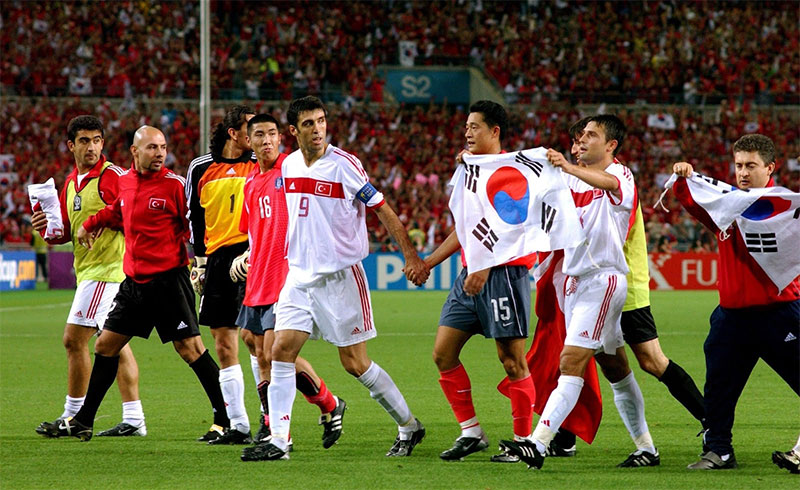
▲ Türkiye national team bronze medal World Cup 2002
In 2003, Turkey finished third at the FIFA Confederations Cup. In the group stage, Turkey defeated the United States 2–1 before losing to Cameroon 1–0. In their final group match, Turkey drew 2–2 against Brazil, eliminating them from the tournament. Turkey lost to eventual tournament winners France 3–2 in the semi-finals, and then defeated Colombia 2–1 in the third-place match. Tuncay scored three goals and an assist, which won him the Silver Shoe Award and the Silver Ball Award for the second-best player of the tournament.
The Turks failed to qualify for Euro 2004 after Latvia won the qualification play-offs. They also missed out on the 2006 World Cup after failing to win the play-offs, this time on away goals against Switzerland, again after finishing second in their group.
Turkey qualified for their first international tournament in six years by finishing second behind Greece in Euro 2008 qualifying Group C to reach the tournament. They were placed alongside Switzerland, Portugal, and the Czech Republic in Group A. In their first match, they played Portugal and were beaten 2–0, but wins over Switzerland (2–1) and the Czech Republic (3–2) – both secured by late goals – meant qualification for the knockout stages. Turkey knocked out a host nation – Switzerland – in the group stages for the second time. The quarter-final against Croatia was goalless after 90 minutes, and Croatia led 1–0 in the final minute of extra time, but another late Turkish goal by forward Semih Şentürk brought the game to penalties. The goal raised some controversy with Croatia fans and Croatia head coach Slaven Bilić, who claimed that the goal had been scored after extra time had elapsed. This complaint, however, was overruled, and the game went into penalties. Turkey defeated Croatia in penalties, 3–1. Turkey went into the semi-final against Germany with just 14 outfield players available as a result of injuries and suspensions but scored first and were drawing 2–2. But they finished third by default after losing 3–2 with a last-minute goal by Philipp Lahm.
2010s
Turkey was drawn in UEFA Group 5 together with Armenia, Belgium, Bosnia and Herzegovina, Estonia and Spain. Turkey had a mixed qualifying campaign, finishing with 15 points and missing out on a play-off place to Bosnia and Herzegovina with 19 points. Spain topped the group to qualify, winning every game in the process. Coach Fatih Terim announced he would be resigning his post following their failure to qualify.
Turkey was drawn in Group A in qualification for Euro 2012, together with Kazakhstan, Austria, Belgium, Germany and Azerbaijan. The Turks reached the play-offs after beating Azerbaijan 1–0 but were eliminated 3–0 on aggregate by Croatia.
On 14 November 2012, Turkey celebrated their 500th match in a friendly game played against Denmark at the Türk Telekom Arena, Istanbul, which ended in a 1–1 draw. Before the match, footballers and coaches, who contributed to the national team's success in the past, were honored. Turkish pop singer Hadise, who wore a national team jersey with the number 500, performed a small concert.
Turkey was drawn in Group D in qualification for the 2014 World Cup, together with Andorra, Estonia, Hungary, the Netherlands and Romania, finishing fourth. Abdullah Avcı was sacked soon after. Fatih Terim was put in charge for the third time to lead the national team, but a 2–0 defeat against the Netherlands ended hopes of qualification.
Grouped in Group A in the qualification campaign for Euro 2016, with Iceland, Latvia, Kazakhstan, the Netherlands, and the Czech Republic, the team qualified for their first major tournament in eight years as the best third-placed team after beating Iceland 1–0, with Selçuk İnan netting a free kick in the 89th minute, along with Kazakhstan beating Latvia 1–0. After a year and a half of going unbeaten, a loss to England as a pre-tournament friendly ended the team's winning streak, subsequently leading to back-to-back losses against Croatia and Spain in the tournament. Turkey won their last game against the Czech Republic, 2–0. They nearly reached the last 16 until a late winner for Ireland against Italy meant that the latter instead qualified as one of the best third-placed teams.
▲ Türkiye against Austria on 29 March 2016
Placed with Croatia, Finland, Iceland, Kosovo and Ukraine for 2018 World Cup qualifying, manager Fatih Terim left after an off-field incident, and 72-year-old former Romania manager Mircea Lucescu took over. After eight games, Turkey were in pole position to qualify for the tournament, but a 3–0 defeat to Iceland at home ended automatic qualification hopes. After a 2–2 draw against Finland, the team finished fourth in Group I.
Turkey was drawn with Russia and Sweden in the 2018–19 UEFA Nations League B and performed poorly, leading to a bottom finish. In the first game at home against 2018 World Cup host and quarter-finalist Russia, Turkey lost 2–1. Turkey then put up its best performance in the League, winning 3–2 against Sweden on Swedish soil. However, Turkey could not extend their performances and lost to Russia in Sochi before suffering a humiliating 1–0 home loss to Sweden, thus initially relegating Turkey to League C. However, UEFA rule changes meant Turkey was allowed to remain in League B.
Turkey was drawn in Group H in the qualifying stages of Euro 2020 along with 2018 World Cup champions France, Iceland, Albania, Moldova, and Andorra. Veteran coach Şenol Güneş revolutionized the team, with many young talents, combining them with experienced players like Burak Yılmaz and Emre Belözoglu. The team eventually managed to achieve a 2–0 victory against France in Konya and a 1–1 draw at the Stade de France. Turkey then struggled against Andorra in their first match, winning after an 89th-minute goal at Vodafone Park in Istanbul. Turkey's only defeat in the group came against Iceland in Reykjavík, losing 2–1. The defeat came after the ill-treatment of the Turkish group at the Iceland customs, keeping them at the airport for three hours. This was followed by an Icelandic supporter holding a toilet brush to team captain Emre Belozoglu as a pretend microphone during an interview. The events were heavily criticized by the Turkish and European media. Turkey entered matchday nine as group leaders with 19 points. They and Iceland drew 0–0 at Turk Telekom Arena in Istanbul. After finishing behind France, a draw was enough to secure Turkey a spot in Euro 2020 finals, ahead of their away match against Andorra.
2020s
After qualifying for Euro 2020, which would be postponed to June and July 2021 due to COVID-19, Turkey was drawn against Russia, alongside Hungary, and Serbia in the 2020–21 UEFA Nations League B. They performed poorly in their two opening games in September 2020. The first game against Hungary at home saw Turkey suffer a 1–0 courtesy of a free kick from Dominik Szoboszlai. Playing in Belgrade, following Aleksandar Kolarov's red card, the Turks were held goalless against Serbia. This hampered their chances of qualifying for League A, as their next opponents in October would be Russia (a country that Turkey hasn't beaten since 1975) and Hungary.
In Moscow, Turkey drew 1–1 after Kenan Karaman's equalizer. The Turkish side then drew 2–2 against Serbia at home.
Against Russia, Denis Cheryshev scored for the Russians to take an early lead making the Turkish side look hapless. But after Russia's red card reduced the side to ten men, the Turks eventually won 3–2. The Turks then traveled to Hungary with the hope that a win against the Hungarians could mean possible promotion, if Russia lost to Serbia. While Russia suffered a humiliating 5–0 defeat away in Belgrade, Turkey also lost 2–0 to the Hungarians. That meant Turkey and Serbia were tied on points, but they were relegated after they lost the head-to-head away goals tiebreaker, 2–0. Such an outcome also meant Turkey would have to fight to get a direct Qatar 2022 ticket as play-off qualification appeared slim with their relegation, in which the 2022 World Cup qualifiers that started in March 2021.
Turkey had the honor of opening the Euro 2021 finals, but with Ciro Immobile and Lorenzo Insigne scoring, Turkey fell 3–0 to Italy. Roberto Mancini's side had been frustrated by Turkey's defensive approach in the first half but broke through in the 53rd minute when a hard-hit cross from Domenico Berardi flew in off Turkish defender Merih Demiral for an own goal. They went on to lose the next two games to both Switzerland and Wales, losing all three games alongside debutants North Macedonia.
In the 2022 World Cup qualifiers, Turkey was drawn into Group G with the Netherlands, Norway, Montenegro, Latvia, and Gibraltar. After they finished second in their group behind the Netherlands, they entered 2022 FIFA World Cup UEFA playoffs against Portugal but they lost 3–1 in a game that Burak Yılmaz missed a crucial penalty to equalise and thus failed to qualify for the 2022 FIFA World Cup. Afterwards, he announced his international retirement.
In 2022–23 UEFA Nations League C, they were drawn in Group 1 with Luxembourg, the Faroe Islanders, Lithuania. They were promoted to League B after recording 13 points in six games. Their Nations League success not only rewarded them a playoff place should they fail to qualify directly, but also an easier draw in Group D with Croatia, Wales, Armenia, and Latvia. They subsequently qualified directly on 16 October 2023 and finished first on 19 November 2023.
Turkey were then placed into Group F in Euro 2024 alongside Portugal, Czech Republic, and play-off winner C, who would eventually be Georgia.
♣ Rivalries
Turkey has developed several notable rivalries, the most well-known being Croatia, and Greece, with a smaller rivalry against Armenia.
Turkey and Croatia have played each other nine times, with their first encounter at Euro 1996; where both countries made their debuts in the opening match, which Croatia won 1–0. In Euro 2008, Turkey won on penalties after a 1–1 deadlock. The two teams faced each other in the 2012 Euro qualifying play-offs, with Croatia winning 3–0 in the first-leg in Istanbul, and advancing to the tournament finals following a 0–0 draw in the second-leg. The two teams faced each other once again in a European competition at Euro 2016, playing in the opening match of Group D, with Croatia winning 1–0. Only three months after the Euros, the two teams played in their opening match in Group I of 2018 FIFA World Cup qualifying, which finished 1–1. Exactly one year later, Turkey won the reverse fixture 1–0 at home, which played a key part in both countries' qualifying campaigns, although Turkey would not qualify for the World Cup while Croatia would finish runners-up behind France. Turkey and Croatia would again face each other during the UEFA Euro 2024 qualifying campaign, where Turkey managed to shock Croatia with a 1–0 win away as the Turks managed to top the table of a qualification group for the first time in their history, whereas Croatia, despite a 2–0 away win earlier to Turkey, had struggled with a rather poor performance and only managed to qualify at the last hurdle.
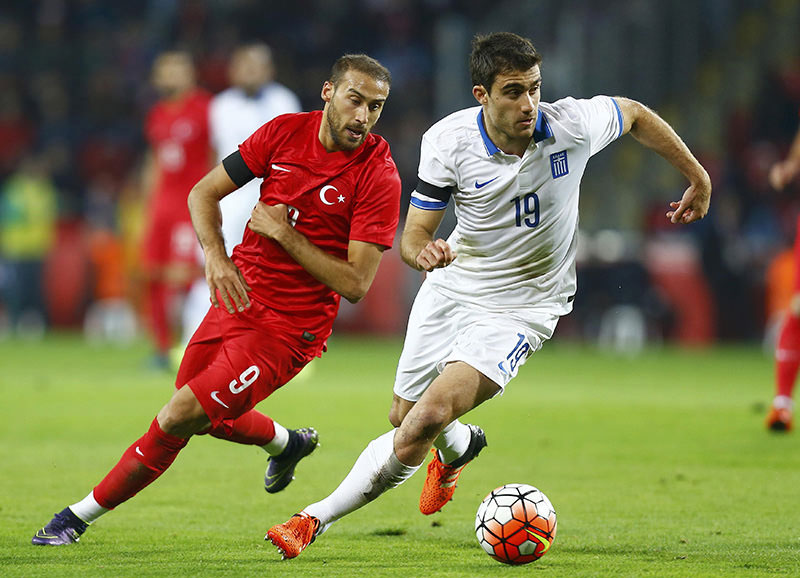
▲ Türkiye vs Greece
Turkey also has a historical rivalry with Greece. Playing 14 times, Turkey won eight matches, drew thrice, and lost only three games. Both countries have been described as "punching above their weight", with Greece winning Euro 2004 after being classified as underdogs before the competition, and Turkey advancing to the semi-finals of Euro 2008, where they were knocked out by Germany. Due to tension between the two countries and the dispute over Cyprus, coupled with several incidents occurring during matches between Turkish and Greek clubs, it has been described as one of the biggest international football rivalries.
Turkey has a rivalry with Armenia, meeting four times, with Turkey winning three and drawing once. The root of the rivalry, however, traced further back to the Armenian genocide in 1915. Due to massive disparity between the two sides, the rivalry is more relevant in Armenia than in Turkey. Despite the indifference of Turkish populace toward Armenia, the rivalry is sometimes stressed to importance due to hostility between Armenia and Azerbaijan, with the latter sharing a common cultural and heritage link with Turkey.
 Premier League
Premier League La Liga
La Liga Bundesliga
Bundesliga Serie A
Serie A Ligue 1
Ligue 1 Liga Portugal
Liga Portugal Eredivisie
Eredivisie Süper Lig
Süper Lig MLS
MLS Série A
Série A J1 League
J1 League Saudi Pro League
Saudi Pro League WSL
WSL Première Ligue
Première Ligue NWSL
NWSL







 Chapter 14. Football national team > History of the Turkish national football team
Chapter 14. Football national team > History of the Turkish national football team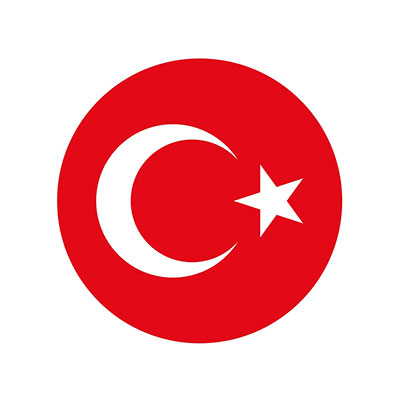
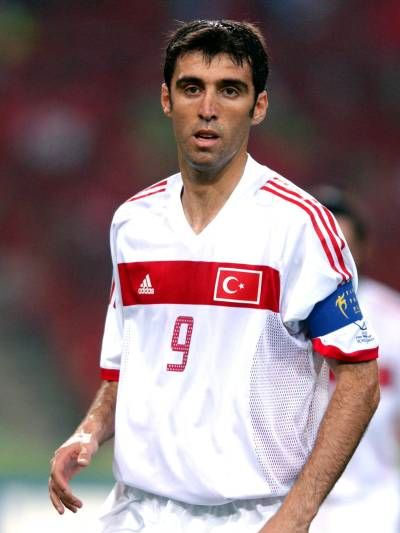

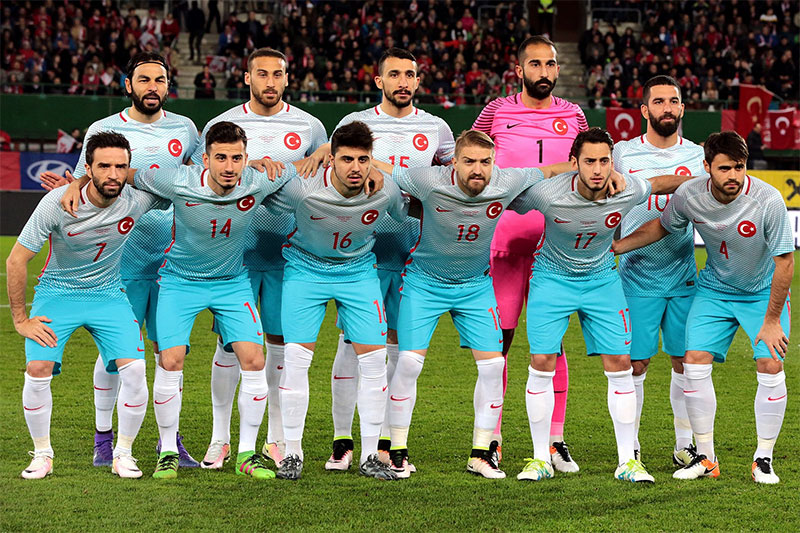

 •Wikipedia
•Wikipedia








